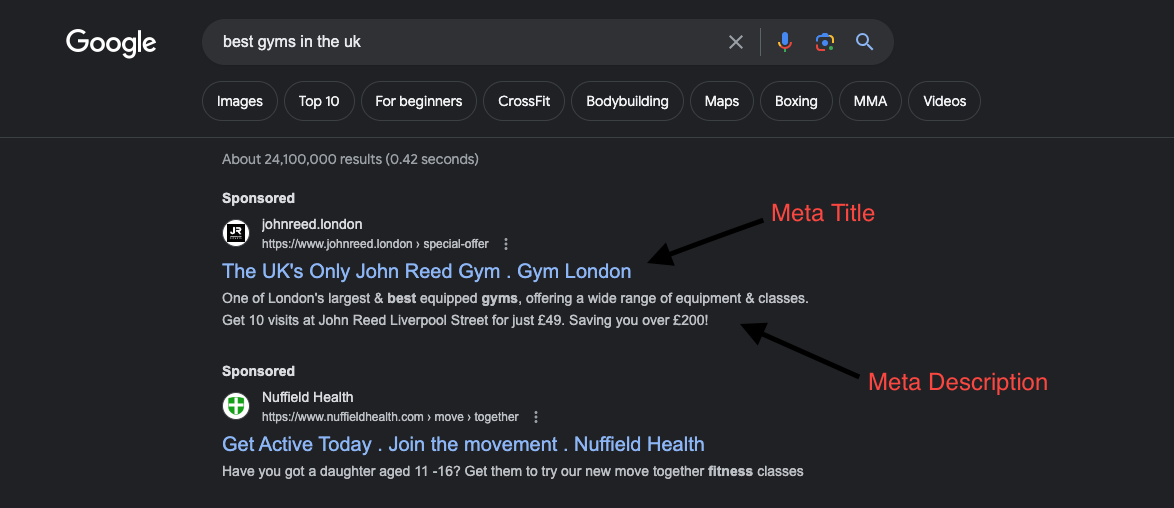
With digital marketing becoming an increasingly more refined and detailed discipline, SEO (Search Engine Optimization) is inescapably growing in importance. It is a process that helps websites reach the coveted first page of search engine results, ultimately leading to more organic traffic and a better online presence.
As important as SEO is, it’s also surrounded by myths and misconceptions that can mislead even the most experienced marketers, let alone those who are just now getting familiar with it.
What is SEO and why is it so important?
SEO is the strategic practice of optimizing a website’s content, structure and performance to rank higher in search engine results, such as Google, Bing or Yahoo. It’s critical because it serves as a compass that guides your digital presence to success.
Properly executed, SEO:
- Increases visibility: higher rankings mean more people are aware of your content.
- Improves credibility: top rankings convey authority and trust, which are one of the foundations.
- Boosts traffic: organic search is one of the most important sources of website visitors.
- Improves user experience: SEO involves optimizing for user experience.
- Leads to conversions: More traffic can lead to more sales or leads.
Now let’s get to the heart of the matter and debunk common SEO myths.
Myth 1: "Keyword stuffing is the key to SEO success"
Gone are the days of stuffing your content with keywords without thinking. Keyword stuffing not only looks unnatural to readers, but also leads to penalties from search engines. Today, search engine optimization focuses on the context and relevance of keywords, not their sheer quantity. Strive for a natural, user-friendly flow in your content.
Myth 2: "Meta tags have no impact on search engine optimization"
Some believe that meta tags, especially meta keywords and meta descriptions, have become obsolete in search engine optimization. For those who don’t know, meta tags are snippets of HTML code that provide information about a webpage to search engines. They include meta titles and meta descriptions. The meta title appears as the headline in search results, while the meta description provides a brief summary of the page’s content.

Some believe that meta tags, especially meta keywords and meta descriptions, have become obsolete in search engine optimization. For those who don’t know, meta tags are snippets of HTML code that provide information about a webpage to search engines. They include meta titles and meta descriptions. The meta title appears as the headline in search results, while the meta description provides a brief summary of the page’s content.
Myth 3: "SEO is a one-off"
SEO isn’t a one-time affair; it’s an ongoing process.
Search engines are constantly evolving their algorithms, and your competitors are likely optimizing their sites as well. Regular updates, fresh content, and adapting to algorithm changes are critical to maintaining and improving your rankings.
Myth 4: "The more backlinks, the better"
Quality trumps quantity when it comes to backlinks. Acquiring spammy or irrelevant backlinks can hurt your SEO efforts. Focus on getting quality backlinks from authoritative sources in your industry. Natural, organic backlinks are far more valuable than purchased or manipulated links.
Myth 5: "Google doesn't care about the speed of a website"
Google cares a lot about website speed. A slow-loading website can lead to higher bounce rates, which in turn can negatively impact your ranking. Use tools like Google’s PageSpeed Insights to identify and fix speed issues.
Myth 6: "The length of the content doesn't matter"
Although quality comes first, longer content often performs better in search results. Longer articles tend to provide more detailed information that is interesting to both readers and search engines. However, the length of the content should be tailored to the depth of the topic and user intent. Don’t stuff your content with unnecessary words.
Myth 7: "Social signals directly affect the ranking"
Contrary to popular belief, social signals, such as likes and shares on social media, don’t directly impact your search engine rankings. However, a strong social media presence can indirectly boost search engine optimization by driving traffic, increasing brand visibility and generating backlinks.
We already explored that topic in one of our earlier blog posts, which you can read more about by clicking here.
Conclusion
Stick to credible sources and separate SEO facts from fiction. Every now and then there are some changes to Google’s ranking methods, so make sure to also stay up to date with the novelties.
For reputable SEO information, check out these sources:
- Google’s Search Engine Optimization (SEO) Starter Guide
- Moz’s Beginner’s Guide to SEO
- Search Engine Land
You can also study these courses to improve your skills and get certified in SEO:





